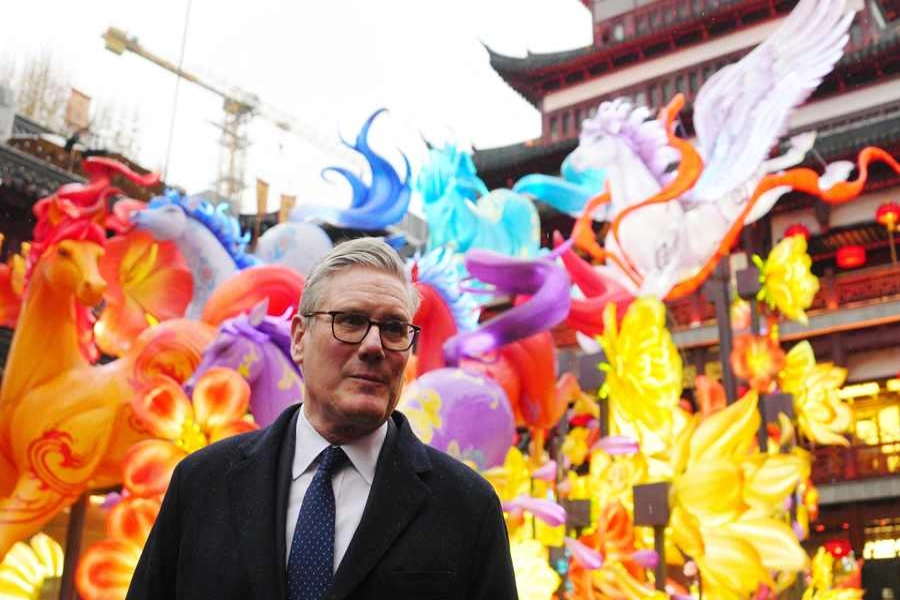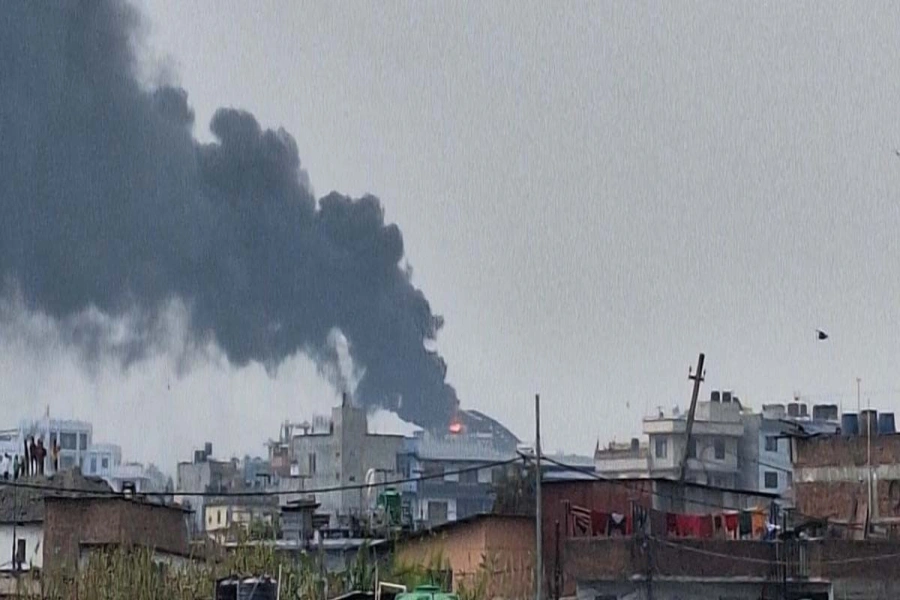The US has completely realized the importance of Africa and investing in Africa is not just about competing with China and Russia; apart from the natural resources, Africa is an epicenter of tremendous opportunity. If human capital truly is the greatest asset for economic growth, Africa has unappreciated potential.
Africa matters to the developed world, especially to the United states, western countries, China and Russia. It is the world's second-largest and second-most populous continent, after Asia . As much as 95 percent of the world’s diamonds and 50 percent of the world’s gold comes from Africa. Africa makes 70 percent of the world’s cocoa beans. Africa has eight percent of the world’s natural gas and 12 percent of the world’s oil reserves. Africa holds vast repositories of rare earth elements, vital to the production of everything from cell phones and LED screens to energy infrastructure and defense technologies.
Having abundant natural resources and human resources, most African countries are facing challenges for their economic development and the quality of life does not correlate exactly with almost all nations’ huge wealth.
Even after being independent, during the same periods as the countries of Asia and Latin America, most African countries are lagging behind in development compared to them.
The remnants of colonial mindset and desire to be in power for a long term by most of the rulers are the root of deterrents for stability and prosperity in the continent.
China and the United States are major countries, as the largest partners for trade and investment in Africa. However, Chinese trade with Africa is about four times that of the United States, and Beijing has become an important creditor by offering cheaper loans than Western lenders.
The United States and western countries are trying vigorously to increase their share in trade and investment in Africa. For the first time, In 2014 President Barack Obama hosted an Africa leaders summit. Leaders from 50 African states attended the three-day summit. The summit primarily focused on trade, investment and security of the continent.
Thereafter, the foreign policy emphasis was shifted away from Africa during Donald Trump presidency and the influence of other powers, such as China, grew significantly on the continent.
As a continuation of the 2014 summit, recently, from 13-16 December, 2022, President Joe Biden hosted the United States–Africa Leaders Summit in Washington.
China, Japan to forge closer ties at 'historic turning point'

Leaders from as many as 49 African states and various African Union representatives attended the three-day summit.
The summit primarily focused on health, climate change, food security, cooperation in space, and security of the continent. The summit aimed to demonstrate the United States' commitment toward Africa amidst the growing influence of China and Russia in the continent.
"The United States is 'all in' on Africa's future," Biden told African leaders from 49 countries and the African Union at the three-day summit in Washington that began on Tuesday (Dec 13).
Biden's remarks, and the summit, aim to position the United States as a leading partner to African countries. During the summit, the US announced a commitment of $55bn (£44bn) to Africa over the next three years.
However, Africa is transforming rapidly. Economic policies and business environments on the continent are improving. Institutions are becoming more resilient and good governance is spreading. But there are also difficulties and setbacks.
According to the Economist Intelligence Unit’s annual Democracy Index, seven African countries were classified under flawed democracies, 13 under hybrid and 23 under authoritarian regimes.
Eighteen of the poorest countries by GDP per capita are in Africa. There are inequalities in distribution of national wealth. It is the continent with the second largest number of hungry people after Asia and the Pacific.
Despite other hot spots for war, many countries in Sub Saharan Africa consistently remain among the top places for ongoing conflicts, consisting of both long standing civil wars, ethnic conflicts that even resulted in genocides, and conflicts between countries and inside countries. As a result of war and hunger, Africa is full of refugees, who are often deliberately displaced by military forces during ethnic conflicts.
Moreover, the catastrophes cause deadly periods of great shortages. The most damaging are the famines that have regularly hit the continent, especially the Horn of Africa. These have been caused by disruptions due to warfare, years of drought, and plagues of locusts.
Public health care coverage and decent education facilities for the rural communities are still far from satisfactory.
The greatest mortality in Africa arises from preventable water-borne diseases, which affect infants and young children greater than any other group. The principal cause of these diseases is the regional water crisis, or lack of safe drinking water, unscientific sewage and drinking water supplies.
Not the entire pictures are exasperating, but some hopeful positive images are also perceptible. For instance, South Africa, Kenya, Nigeria, Ghana, Mauritius and Botswana have shown big strides toward democracy and stability.
China has a very deep-rooted influence on the African economy. African countries rapidly increased their borrowing from China as they sought to end their dependence on the IMF and the World Bank, which demand market liberalization in exchange for loans.
The question of how to compete with China in Africa, is not really an easy task. Most Sub Saharan African countries are facing the problem of debt traps. However, there is less realization in major borrowing nations.
Moreover, African debt to China rose from $10 billion in 2010 to more than $30 billion in 2016. China loaned a total of $143 billion to African governments and state-owned enterprises between 2000 and 2017. In 2020, the African countries with the largest Chinese debt were Angola ($25 billion), Ethiopia ($13.5 billion), Zambia ($7.4 billion), the Republic of the Congo ($7.3 billion), and Sudan ($6.4 billion).
In August 2022, the Ministry of Foreign Affairs of the People's Republic of China announced that it would forgive 23 interest-free loans that matured at the end of 2021 to 17 unspecified African countries.
The US has completely realized the importance of Africa and investing in Africa is not just about competing with China and Russia: apart from the natural resources, Africa is an epicenter of tremendous opportunity. If human capital truly is the greatest asset to economic growth, Africa has unappreciated potential. In the next 35 years, Africa’s population is expected to double — comprising nearly 30 percent of the world’s population by 2050.
Africa also has the potential to become the world’s next manufacturing epicenter. As the cost of labor in China increases, experts project that 100 million labor-intensive jobs will leave the country by 2030 — with Africa as a likely landing spot.
Since its founding in 2004, Millenium Challenge Corporation (MCC) of the US has invested nearly $9.5 billion with 24 partner countries in Africa. The majority of MCC’s investments are infrastructure projects that have delivered clean water and sanitation to help fight diseases, made transportation more efficient through construction of hundreds of kilometers of roads, improved agriculture yields by bringing irrigation to farmers, and increased access to reliable electricity for households and businesses.
Moreover, the US is preparing for a new agreement with the African Continental Free Trade Area that will give American companies access to 1.3 billion people and a market valued at $3.4 trillion. Some large US companies are prepared to invest in Africa, including General Electric Co and Cisco Systems Inc.
For the better and stable economic future of Africa, creation of a competitive investment climate is necessary and without a competitive environment, it is not a question of the US and China. Without competition, it would be difficult for rapid economic transformations and stability in Africa; the ball is in the court of African leaders.






-1200x560-1772467693.webp)






























